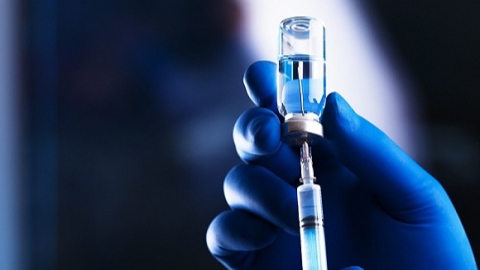Shanghai research team to develop COVID-19 vaccine
A COVID-19 vaccine research team in Shanghai is developing the world's first COVID-19 vaccination by using human cells as a carrier, according to a report from China Business Network on Sunday. Experts said the success remains challenging.
When a vaccination is created, the head of the team said he would use the vaccine on himself, said the report.
Xu Jianqing, director of the Institute of Emerging Infectious Diseases at Shanghai Public Health Clinical Center, leads the research team that uses human cells as a carrier. Xu explained this can improve the safety of that the virus S protein is expressed on the human cell membrane, reported the China Business Network.
"The vaccine carrier comes from the body's cells, which are not infectious and are safer than viruses," Xu told the China Business Network, adding that it can also be engineered with new genetic engineering techniques for its spike proteins, but are difficult to accomplish.
The vaccine is also expected to have a strong protective effect on the elderly, according to Xu.
Although it is still unknown which type of human cells are being used as the vector of coronavirus to develop the vaccine in Xu's research, Yang Zhanqiu, a virologist at Wuhan University, told the Global Times on Wednesday that generally lung cells and kidney cells are more common to be applied in such vaccine.
The safety and efficacy of this human cell vaccine against the human immune response remains to be demonstrated as it has not previously been clinically proven, Xu said.
After it's developed, Yang said the vaccine will be first tested on animals and then on some volunteers. Once confirmed to be effective and non-toxic, it will be ready for commercial use.
Besides human cell carrier vaccine, Xu's team has been developing nucleic acid vaccine as well, which have already been tested in mice, and the tests on primates are currently underway.
Xu has gave himself a dose of COVID-19 nucleic acid vaccine in February and will receive a shot of the human cell carrier vaccine in approximately two weeks, said the China Business Network.
A human cell carrier vaccine, if successful, would also be a major innovation in Chinese technology, said Xu. "If we continue to follow the old ways in the development of the novel coronavirus vaccine, we will miss a great opportunity to tackle the key scientific problems."
However, experts say that the final success of the vaccine remains challenging.
Paul McKay, an expert in immunology at Imperial College London, said that many labs can have coronavirus proteins expressed in human cells and added to the surface of human cells. But only injecting human cells that express viral proteins directly into humans might not work, according to the China Business Network report.

